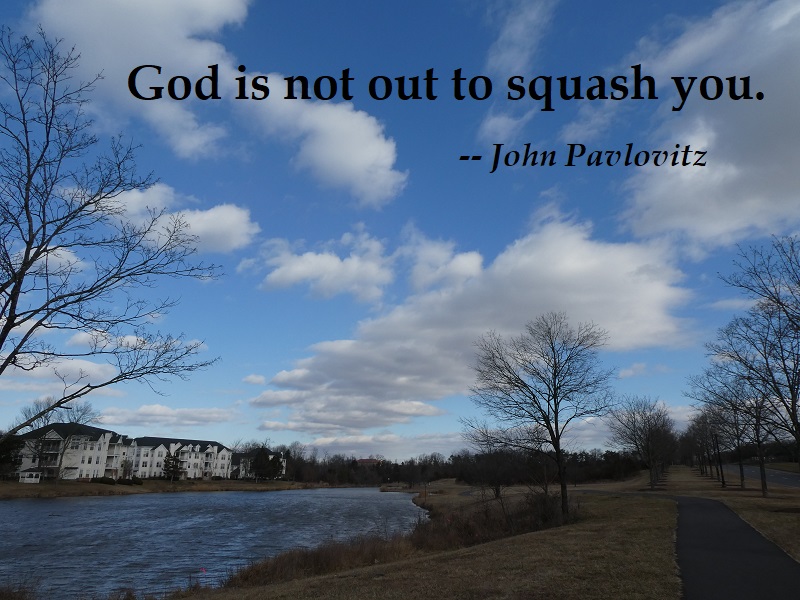One of the great comforts in my travels to build a bigger table and to right-size God has been a simple reality that I’ve embraced, one that I hope seeps deep into your heart whatever your theological leanings are: God is not out to squash you. This is an incredibly difficult truth to claim if you’ve experienced religion through the lens of fear that told you otherwise.
I grew up believing that God loved me dearly. I also grew up believing God was very angry with me. I was taught that God personally created me and yet was immediately displeased by my sinfulness. So my very earliest identity was forged in the crucible of this unsettling duplicity: I was both adored and resented by my Creator. As a child I lived in the tension of being the object of both the wrath and the love of God simultaneously. As I grew, I was told I needed to find and do and believe what would tip the scales from punishment to reward, from damnation to salvation, from abandonment to blessing. I had to remove the massive barrier between myself and God, to bridge the wide expanse between the two of us — which somehow was me. For simply being, the problem was me. Apologize for my inborn transgressions and I earned the right to be God’s child. One wrong move, one doctrinal deviation, one errant belief, though, and I would be toast. Living always in paradox, I learned that I had a tender, caring Maker who knit me together in my mother’s womb, numbered every hair on my head — and was never far from destroying me for the birth defect I’d inherited somewhere in the process.
— John Pavlovitz, A Bigger Table, p. 161-162
Photo: South Riding, Virginia, 1/23/21
